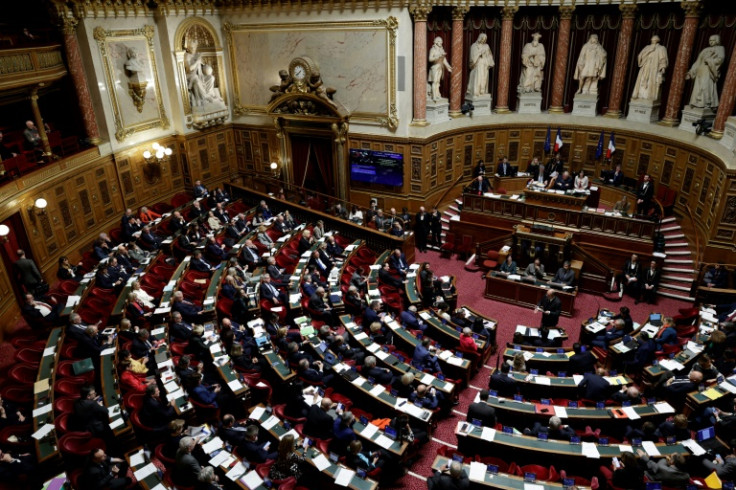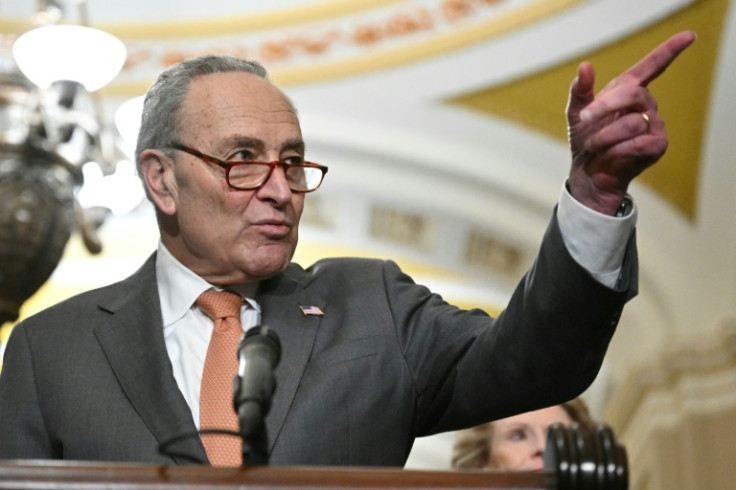
The United States Senate successfully passed a $1.2 trillion package of spending bills during the early morning hours of Saturday. This action, which comes nearly six months into the current budget year, aims to address critical funding needs for federal agencies and avert any imminent threats of a government shutdown.
The ongoing dispute over funding for border security was threatening to force a shutdown of most (70%) of the federal government if an impasse wasn't not by Saturday.
After hours negotiating, the Senate emitted a 74-24 vote and a bipartisan majority approved the package.
"We have just reached an agreement to complete the job of funding the government," Senate Majority Leader Chuck Schumer said before the midnight deadline. "It is good for the country that we have reached this bipartisan deal. It wasn't easy, but tonight our persistence has been worth it."

"Because obligations of federal funds are incurred and tracked on a daily basis, agencies will not shut down and may continue their normal operations," a note sent by the White House said announcing also that the Office of Management and Budget had ceased shutdown preparations.
The bill now awaits President Joe Biden's signature to become law.
These are some points from the agreement:
- Long Overdue Action:
- The passage of this spending package represents a long-awaited milestone. Lawmakers have been grappling with the budgetary process for months, and this achievement signifies progress toward ensuring essential services and programs receive the necessary funding.
- The delay in passing these bills was partly due to the intricate nature of the legislative process and differing priorities among lawmakers.
- Combining Six Annual Spending Bills:
- The package consolidates six annual spending bills into a single comprehensive measure. These bills cover various aspects of government operations, including defense, healthcare, education, infrastructure, and more.
- Notably, over 70% of the allocated funds will be directed toward defense-related expenditures.
- Bipartisan Efforts:
- Both the House of Representatives and the Senate worked diligently to reach a consensus on the spending package. Bipartisan cooperation was essential to navigate the complexities of budget negotiations.
- Speaker of the House, Mike Johnson (R-La.), expressed confidence in the bill's passage, emphasizing that it would garner sufficient support.
- Avoiding a Government Shutdown:
- The imminent expiration of funding for several key federal agencies added urgency to the situation. However, even if the Senate action extended beyond the midnight deadline, the practical impact would likely be minimal.
- Most federal workers were off duty during the weekend, and many critical government services were already funded through earlier legislation. Therefore, any potential "shutdown" would likely pass without significant disruption unless it extended into Monday.
- Conservative Influence and Negotiations:
- The budgetary process faced challenges due to conservative lawmakers advocating for additional policy mandates and deeper spending cuts. Their influence slowed down negotiations and necessitated short-term funding bills to keep agencies operational.
- The first package of full-year spending bills, which included funding for departments like Veterans Affairs and Agriculture, was approved just two weeks ago.
- Defense Spending Increase:
- Party leaders are highlighting a 5.2% pay increase for service members as a reason for Republicans to support the bill.
- The overall defense spending increase of more than 3% is seen as a critical investment in national security.
In summary, the Senate's passage of the $1.2 trillion spending package represents a crucial step toward maintaining government operations and addressing funding gaps.
© 2025 Latin Times. All rights reserved. Do not reproduce without permission.




